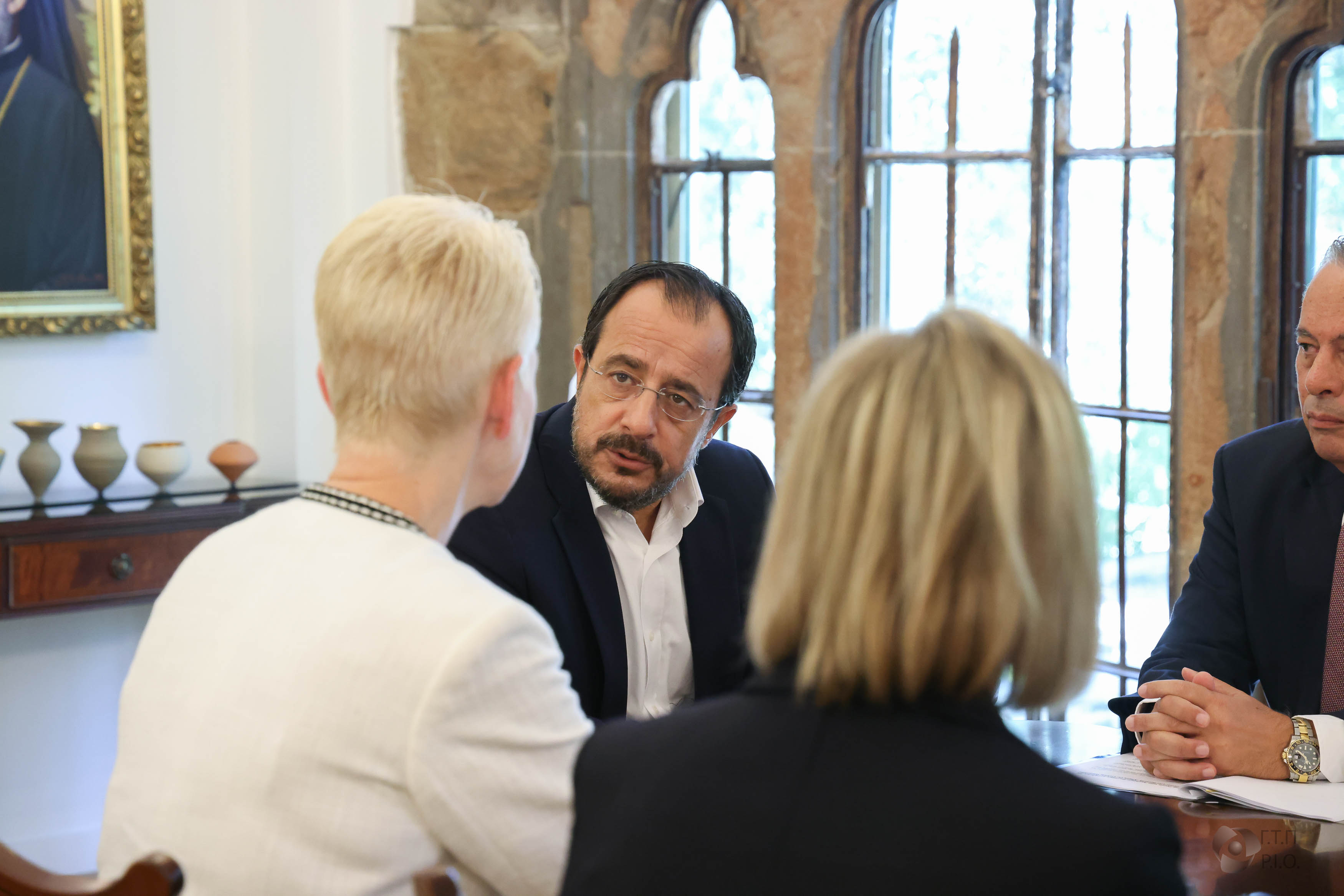If three years ago someone had predicted that in 2024 the Cyprus Republic would be signing a roadmap for bilateral defence cooperation with the United States they would have been dismissed as politically naïve.
Three years ago, the Nicos Anastasiades government was still cosying up to Vladimir Putin while the majority of the political parties and media were zealously promoting the Russian Federation as Cyprus’ reliable ally and perpetuating the myth of its principled stand on the Cyprus problem. There were even a couple of party leaders urging the government to grant Russia military facilities on the island.
The invasion of Ukraine by Russia in 2022 forced the previous government to reluctantly align itself with the West – as an EU member it could not do otherwise – but it was the election of Nikos Christodoulides a year later that placed Cyprus firmly in the West and put relations with the US on another level. This was a surprise, considering the ties Christodoulides had with Moscow as foreign minister, but as president he has worked successfully to build close relations with the US.
Cooperation has taken different forms. There has been the International Military Education and Training programme allowing Cyprus army personnel to receive training in the US, the Acquisition and Cross-Servicing Agreement as well as the State Partnership Program which gives the National Guard access to military expertise from the state of New Jersey. Meanwhile the US embargo on the sale of arms to Cyprus was lifted in 2022 and extended again last year.
And on Monday, Cyprus-US relations took another big step forward when Defence Minister Vasilis Palmas and US Assistant Secretary of Defence for International Security Affairs Celeste Wallander signed the Roadmap for Bilateral Defence Cooperation in Nicosia. “At this point, our strategic partnership is at the highest level it has ever been,” said Palmas, adding that it was “a strong indication of our commitment to further upgrade and deepen our relationship.”
Wallander said the roadmap “reaffirms the exceptional growth our relationship has experienced, especially in the last two years.” More importantly, she praised the Republic’s alignment with the West. “Cyprus’ alignment and shared values with the West during recent regional tumult has been critically important,” she said. “It is evident Cyprus is aligned with the West.”
Never before have we heard such an assertion from the representative of a US administration, and it was justified. Ever since the time of Makarios, Cyprus governments had one foot in the West and one foot in the East, while public sentiment was consistently anti-West, cultivated by the Soviet Union’s propaganda outlets, led by Akel, Edek and supported by newspapers and the state broadcaster. This continued after the fall of the Soviet Union, as the US and Nato were invariably labelled pro-Turkey and enemies of Hellenism.
What is surprising is that the traditional US-bashing has subsided as relations have improved; even Akel has toned down its anti-US rhetoric in the last couple of years. Perhaps Russia’s influence has also waned since the invasion of Ukraine, but the strengthening of Greece-US relations under the Mitsotakis government may also have contributed to the change of atttitude.
Only Turkey is opposed to the strategic partnership of Cyprus and the US, its foreign ministry ludicrously claiming it was detrimental to the security of the Turkish Cypriots in the north and “undermines the neutral US position towards Cyprus.” Turkey’s foreign ministry expressed concern that “these steps” would “make it more difficult to reach a just, lasting and sustainable settlement of the Cyprus issue,” which was rather hypocritical, considering Ankara’s insistence on a two-state solution.
The reality is that the US is interested in Cyprus because of its geographical position – it is close to the Middle East, the world’s most combustible region, in which Russia now has a strong presence in Syria. It needs reliable and dependable allies in the eastern Mediterranean and the Cyprus government has shown that it is ready for such a role, something which also has significant benefits for the island’s security.
President Christodoulides should be given credit for building such strong relations with America. He gained Washington’s trust by fully cooperating on sanctions and AML measures, and subsequently provided all the support and assistance requested with regard to the war in Gaza. And relations will develop. As Wallander said, “this roadmap builds on our robust relationship and charts a path for what we will continue to accomplish together well into the future.”







Click here to change your cookie preferences